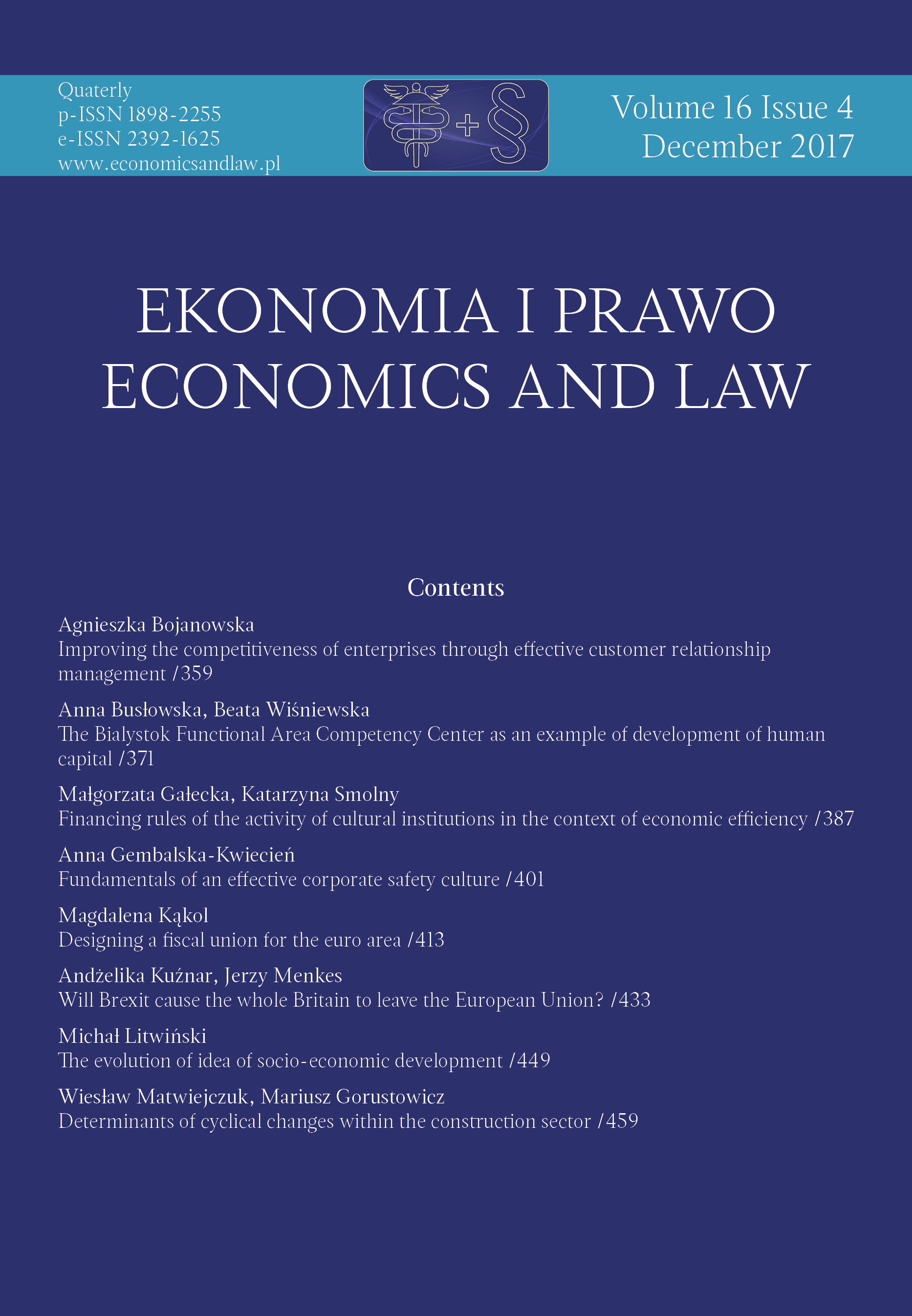Designing a fiscal union for the euro area
Designing a fiscal union for the euro area
Author(s): Magdalena KakolSubject(s): Economy, National Economy, Public Finances
Published by: Wydawnictwo Naukowe Uniwersytetu Mikołaja Kopernika
Keywords: EMU; fiscal union; euro area budget
Summary/Abstract: Motivation: Fiscal integration constitutes an important adjustment mechanism to cope with asymmetric shocks within a monetary union which does not fulfil many criteria of an opti-mal currency area. As is currently the case in the euro area, national governments imple-ment discretionary fiscal policy to try to cope with the adverse economic shocks themselves and to try to stabilise income which leads to high budget deficits and public indebtedness in many euro area countries. While conducting fiscal policy at supranational level and fiscal transfers within EMU would allow for sufficient cross-country risk sharing and contribute to macroeconomic stability of the whole euro area. Aim: The aim of the paper is to give economic rationale and explain the significance of fiscal union for the effective functioning of a common currency area, and especially its macroeconomic stability as well as to present various forms of fiscal integration and to assess the possibility of their introduction within the euro area taking into account the current degree of economic integration, principles of conducting macroeconomic policy and its outcomes, the actual situation in the field of public finances and political circumstances in EMU and its member countries. Results: The greatest potential for macroeconomic stability — both in terms of asymmetric shocks, as well as these affecting the entire euro area — ensures the establishment of a large federal Eurozone budget. However, in a situation of a lack of political will to move forward into a political union, the approach to ensure fiscal stabilisation should include: creating even a small euro area-wide budget and the common Ministry of Finance, intro-ducing a European unemployment (re-)insurance scheme with further harmonization of labour markets, equipping the banking union with a fiscal backstop as well as making na-tional fiscal policies more stabilising and avoiding to impose self-defeating fiscal adjust-ments on crisis countries.
Journal: Ekonomia i Prawo. Economics and Law
- Issue Year: 16/2017
- Issue No: 4
- Page Range: 413-432
- Page Count: 20
- Language: English

